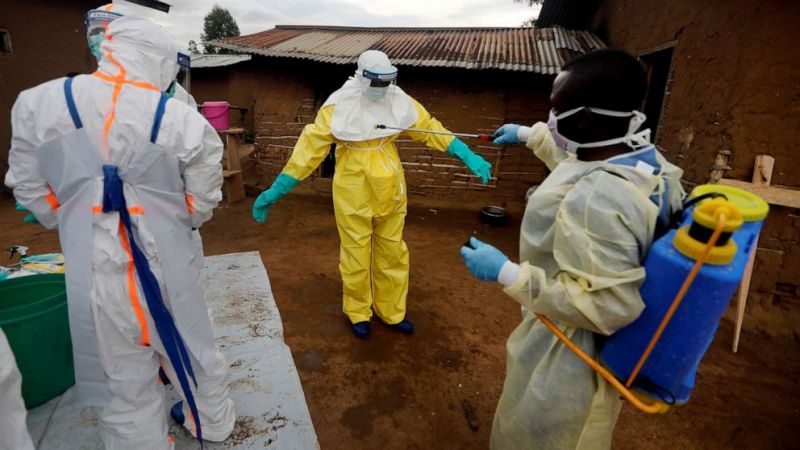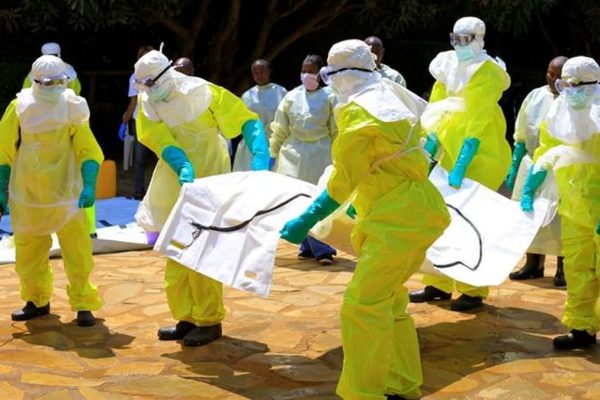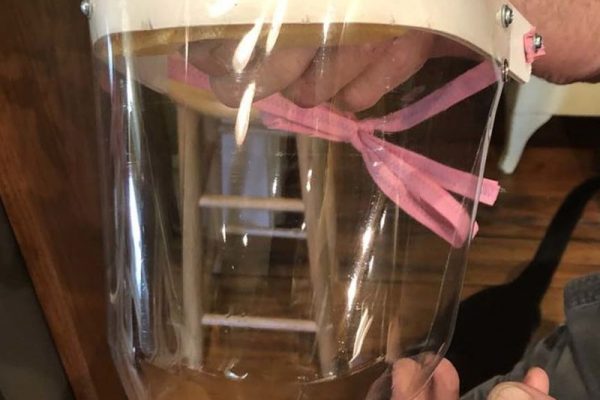Congo Almost Recovered from Ebola Outbreak but Then Another Case Emerged
While the entire world is grappling with the current novel coronavirus pandemic, the second-largest Ebola outbreak in history has left the Democratic Republic of Congo (DRC) worried. A few days ago, the two-year-long battle with Ebola nearly came to an end, but then, a fresh case emerged after 50 days of solace.
Ebola Outbreak in Congo
The DRC reported the first cases in what has come to be known as the Kivu outbreak in August 2018. The outbreak has infected about 3,453 people and 2,273 deaths, so far. No new Ebola cases were reported in the DRC since February 17 and the World Health Organization (WHO) had planned to declare the end of the outbreak on April 12.
The country was looking forward to announcing the end to the epidemic, which would have potentially allowed its overstretched health services to focus on containing the current coronavirus, which has infected 215 people and killed 20 people there.
However, on April 9, a new Ebola patient died. A 26-year-old man in the area of Beni, a town in eastern Congo and one of the major hit areas of the country, had developed symptoms on March 27 and died in the hospital.
If no further new cases emerge, Congo will have to wait another two incubation periods of 42 days until the Ebola epidemic can be declared over.
The country’s health care workers are pivoting their energy and resources to contain two viruses at once, which undoubtedly, is demanding and tiring. The goal is to stop the resurgence of Ebola, while potentially fighting the COVID-19 spread, simultaneously.
Ebola and COVID-19 Outbreaks
Alike the novel coronavirus, Ebola is a zoonotic virus, which means it can pass from animals to people. However, Ebola is a very different disease as it attacks various organs, causing severe hemorrhagic fever, whereas the coronavirus primarily targets the lungs. Also, people spread Ebola once they start showing symptoms, while the new coronavirus can be transmitted even when people are feeling well.
Even with the setback, public health experts are optimistic and working hard. They are of the opinion that although the viruses are very different and the coronavirus has spread far more widely, the intensive campaign to defeat Ebola in Congo may offer some lessons for the world as it deals with the coronavirus pandemic.

Image: ABC News
Dealing with Ebola has been complicated by some of the same challenges now undermining the fight against COVID-19 throughout the world. There have been feuds between government officials, lack of coordination among responding agencies and mistrust from some community members.
As the Ebola outbreak continued on for 19 months, new hotspots kept emerging, health care workers continued to die from the disease and tracing the sick to break transmission chains proved extremely problematic.
Fight Against Kivu Outbreak
The availability of a new vaccine was crucial to their efforts, which was first tested during the West African Ebola outbreak in 2016. More than 300,000 people have received the vaccine since the Kivu outbreak began, marking the largest deployment ever of preventive medicine for Ebola.
For now, researchers are still working on a vaccine for the new coronavirus, and odds are any preliminary versions won’t be widely available for at least a year.
When international organizations arrived in the eastern DRC’s aid in 2018, they faced suspicions from the local population, caused by a long history of conflict in the region. The delayed elections only deepened that mistrust.
In December 2018, government officials announced that those regions would have to wait until March 2019 to vote, even though polling would continue as planned on the last day of 2018 elsewhere in the DRC.
The regions of Beni and Butembo were among the areas heavily affected by the Ebola outbreak. But, after a long history of violence and neglect, people there tend to be more critical of the government.
Taking drastic actions, a group led by Michel Yao, the WHO incident manager for the Kivu outbreak, launched an intensified strategy. The team decided to respond to new cases much faster, ideally within 24 to 48 hours. It also agreed to track down and vaccinate anyone who had been in contact with each infected case, as well as the contacts of those contacts.
The strategy also aimed to improve community engagement, making the response on the ground seem less intimidating and invasive.
Hopefully, the Ebola outbreak will end soon and Congo will be liberated from this crisis.


